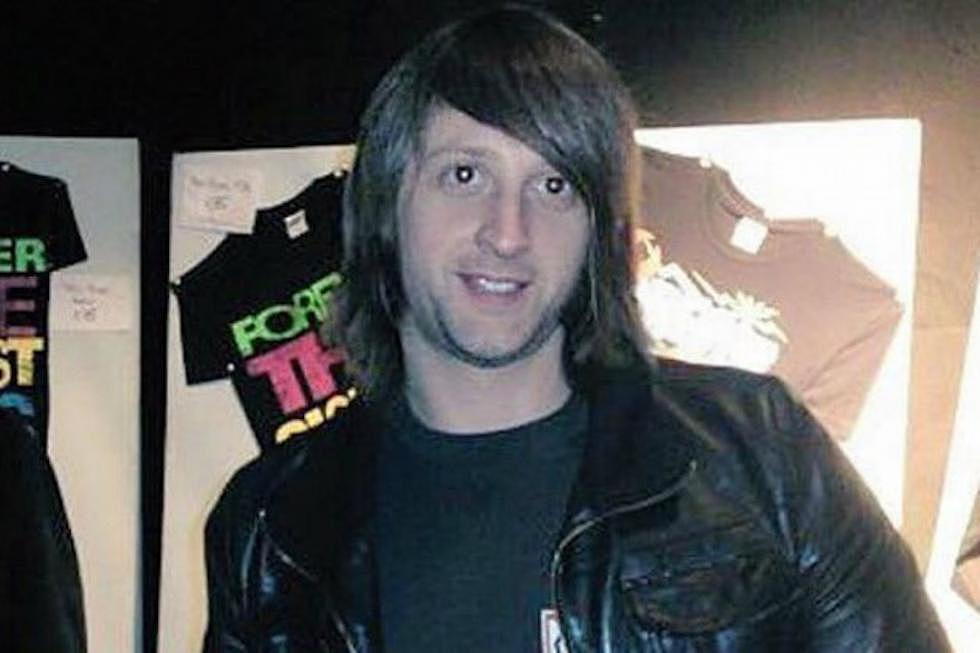
Album Review: Blur, ‘The Magic Whip’
Blur’s first album in 12 years opens with the faint sound of sirens in the distance on “Lonesome Street.” It’s white noise that returns later in the album, coupled with voiceovers, buzzing chatter and chiming bells. It all charges along right next to guitarist Graham Coxon’s signature guitar work – something that has been missing from the Blur equation even before the band’s last album, 2003’s Think Tank. If the sirens and discord don’t clue you into the underlying, thinly disguised sense of foreboding on The Magic Whip, the newly reunited Blur will make sure you recognize its deeply unsettled core over the course of the next 11 tracks.
As outside noise intrudes on Blur’s arrangements, it becomes quite plain that the English four-piece are on a mission to announce their uneasiness with the state of modern life. It’s no coincidence, then, that the band dubbed their 1993 sophomore effort, Modern Life Is Rubbish. That is the very centerfold of much of the band’s output to date. Frontman Damon Albarn has continually served up lyrical critiques on behalf of the working class, but with The Magic Whip, it’s more than “rubbish.” There’s a paranoid undercurrent driving the entire album.
On The Magic Whip, Albarn delivers arresting vignettes of city life: bustling, chaotic and disarrayed. And it’s all mirrored by the album’s nervy soundscapes, which once again seem to find a happy marriage between the electronic and African influences of Albarn’s solo output and his work with the Gorillaz and Coxon’s vital guitar. Like many creative partnerships, Albarn and Coxon’s has been strained, driving the band to its breaking point just prior to Think Tank when Coxon left the band after only contributing to one song on the 2003 LP.
But when their partnership works, it works so well -- and The Magic Whip is a triumphant testament.
“Lonesome Street” is all too aware of fleeting and fickle city dwellers (“This is a place to come to or, well, it was”); lead single, “Go Out” -- which may just be Blur’s most infectious tune since "Song 2” -- lives in “Lonesome Street”’s familiar, crowded haunts only to uncover their inherent loneliness; and “Pyongyang” asserts, “Soon there will be no lights,” as if predicting its own fate.
“New World Towers” follows “Lonesome Street” with a dismal lament of rising 24-hour skyscrapers and never-dimming neon lights. It’s all set to a mournful piano and acoustic guitar refrain, as if calling attention to the fact that these images all repeat themselves with no end in sight.
“My Terracotta Heart,” however, takes a step back from The Magic Whip's outward-looking narratives. Here, “Lonesome Street”’s sirens return, but this time it’s not a warning of the overcrowding and hopelessness of city life. Instead, it focuses on the quartet’s internal dynamics -- specifically the once tumultuous relationship between Albarn and Coxon. “We were more like brothers / That was years ago,” Albarn sings, later fretting, “I don’t know if I’m losing you again.” Lyrically, it’s the album’s most poignant moment, carrying a sweet but heartbreaking grief.
While Blur cite a trip to Hong Kong as the creative groundwork and inspiration behind The Magic Whip -- along with “Pyongyang”’s titular North Korean capital and Sydney in the case of “There Are Too Many of Us” -- these could be the etchings of any sprawling urban landscape and the populations they attract. The imagery and sounds that fill The Magic Whip are often at odds with one another, clashing together with great intention. It creates a cacophony that is at times dissonant and at others drenched in genuine anguish.
As a result, The Magic Whip proves it isn’t the work of a disinterested band riding a wave of nostalgia-driven reunions. Instead, it signifies Coxon and Albarn reconciling past differences and making space for some of their best work yet.
More From Diffuser.fm









